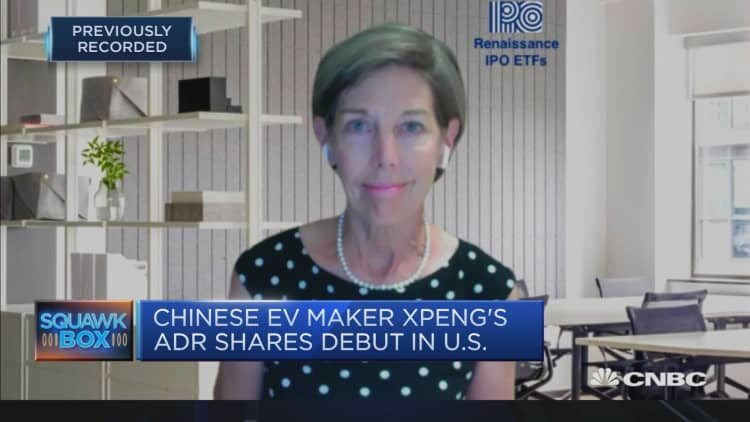
Fewer Chinese companies are expected to go public in the U.S. market once new financial regulations kick in and those that are already listed there may return to China if they cannot comply with the rules, an investor told CNBC.
Alibaba affiliate Ant Group, for example, is preparing for a dual listing in Shanghai and Hong Kong in one of the most highly anticipated initial public offerings.
"We do expect to see fewer Chinese ADRs listing in the U.S.," Kathleen Smith, principal and co-founder of Renaissance Capital, said on CNBC's "Squawk Box Asia" on Friday. Renaissance Capital provides institutional research and IPO ETFs.
"We are seeing a rush of them now because there are some new SEC rules being put into effect that are going to require all U.S.-listed companies to abide by the financial oversight of the accounting rules here," she added.
The U.S. is preparing rules that could prevent Chinese companies from listing on American exchanges if they fail to follow standards for U.S. audits and regulations. President Donald Trump's advisors have also reportedly asked him to delist Chinese companies that already trade in the U.S. if they do not meet U.S. auditing requirements by January 2022.
Smith said that it's been hard for a lot of Chinese companies to comply, given their corporate structures. As such many of them are expected to move toward Hong Kong. Some are already carrying out secondary listings there as a backup.
Highly-valued Chinese companies including Alibaba, NetEase and JD.com have gone public by listing in the American depositary receipt (ADR) market, which allowed them to trade in the United States. But growing tensions between Washington and Beijing prompted some of them to do secondary listings in Hong Kong.
Electric vehicle maker Xpeng, meanwhile, is the latest Chinese company to go public in the U.S., making its market debut on Thursday.
Chinese financial technology firm Lufax is seeking to go public in the U.S. as early as this year, Reuters reported.
The Shanghai-based company may be one of the last prominent Chinese companies to list in the United States "before we see a change and these companies are going to start to target Hong Kong instead," Smith said.
She explained that it might make sense for those firms to list in China instead: "A company that's well known in its home market, you would hope that the home market can develop the large and liquid marketplace that connects with the companies that are operating there."
Experts have previously pointed out the difficulties in totally cutting Chinese companies off from U.S. investors as the world's two-largest economies have become increasingly interdependent. U.S. financial institutions are increasing their presence in China, where authorities are gradually loosening rules on foreign ownership.


